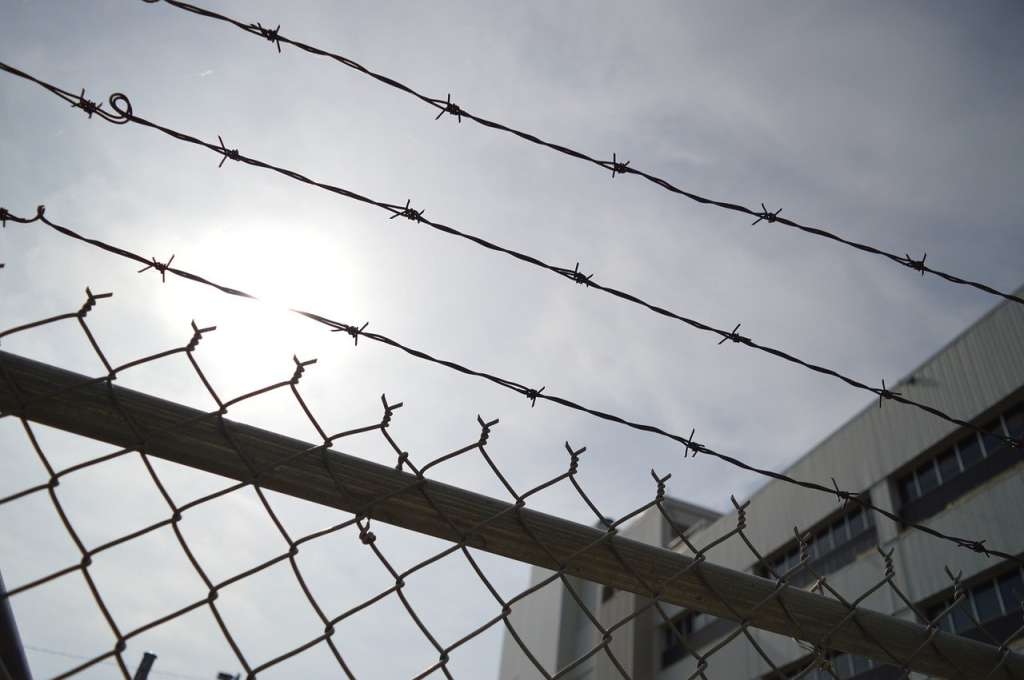Recounting stories of trauma and suffering behind bars, dozens of formerly incarcerated Bay Staters, families of inmates and advocates urged lawmakers Tuesday to order a temporary halt on construction of new correctional facilities and redirect resources toward community-based alternatives.
Any public agency in Massachusetts would be barred from building a new prison or jail or expanding any existing facility to increase capacity for five years under a bill filed by Sen. Jo Comerford (S 2030). If approved, the bill could halt the Baker administration’s progress toward potential construction of a new women’s prison in Norfolk that could cost up to $50 million.
“The commonwealth has no need for extra space. You’ve heard this today, with jails and prisons operating overall at 50 to 60 percent of their capacity,” Comerford told the State Administration and Regulatory Oversight Committee. “Instead of borrowing and paying interest up to about $50 million, which is give or take the estimated price tag for a new prison, the commonwealth should invest in proven and effective community-based alternatives to address the root causes of incarceration.”
Comerford suggested several alternatives to spending state funds on new correctional facilities, such as investing in organizations that support individuals recently released to help reduce recidivism, creating more affordable housing and food access, and expanding job training.
Existing prisons and jails would still be able to perform routine maintenance if the moratorium was implemented, but they would not be able to pursue any repairs or expansions for the purpose of increasing inmate capacity.
A Department of Correction spokesperson declined to comment on Comerford’s bill.
No final decisions have been made, but administration officials have been studying a potential new correctional facility in Norfolk to replace MCI-Framingham, which is the oldest women’s prison of its kind in the country and has been widely reported to be in poor condition. The Division of Capital Asset Management and Maintenance hired a consultant to examine women’s corrections in Massachusetts and is finalizing a contract for a feasibility study.
In February, the state Designer Selection Board selected three firms to submit plans for the potential new prison, CommonWealth Magazine reported. The outlet reported that Jennifer Gaffney, who represented DOC Commissioner Carol Mici at the board meeting, said Mici wants “a facility that is more conducive for the females that we have in our custody, to really look at trauma-informed care.”
Several speakers at Tuesday’s hearing, including National Council for Incarcerated and Formerly Incarcerated Women and Girls Director Andrea James, said they do not believe a “trauma-informed” prison setting is possible.
“As the women and girls most directly affected and who have had the experience of living in a prison, we know that a jail or prison will never be a place for a woman or girl to heal or advance her life,” James, who was released from prison in 2011, said. “It’s the culture of incarceration that causes further harm and does not change, regardless of the jail or prison.”
About 70 people signed up to testify about Comerford’s proposed moratorium bill, more than some committees draw for entire hearings with dozens of bills on the agenda.
Many moratorium supporters aimed their criticism at the broader criminal justice system, arguing before the committee that building or expanding correctional facilities will reinforce a “status quo” they believe subjects those convicted of crimes and incarcerated to unnecessary pain.
Leslie Credle told the committee about the fatal shooting of her daughter, Brianna Hardy, in 2017 and the “mental torture” she has endured since then. But Credle — herself a formerly incarcerated person — said she does not wish prison on her daughter’s murderer.
“I’m here as a mother who wants nothing more than to have that person pay for their sins, to burn in hell, but not rot in a prison cell because prison is not going to bring my daughter back,” Credle, who leads the Justice 4 Housing organization, said. “I’ve lived in a prison cell as well, and I know what the DOC does to people who live in their prisons, and it’s definitely not rehabilitation.”
Credle said the “system does not work the way it is.”
“If we don’t stop overpolicing our communities and locking people up without treatment, this is what you’re going to have: more mothers like me,” she said.
The population of women in Massachusetts prisons — a count that also includes transgender men and women and non-binary individuals — has dropped significantly. Over the past decade, female inmate admissions peaked at 4,409 in 2014, then fell to 2,345 by 2019 and only 358 in 2020, according to Department of Correction data.
Comerford said the statewide incarceration rate for women, transgender and non-binary people is the lowest in the nation in 2021.
Michael Cox, policy director for the Boston chapter of criminal abolition advocacy group Black and Pink, said pausing construction and expansion would “provide an opportunity for the seeds of the criminal justice reform act of 2018 to fully ripen and bear fruit.”
He noted the steep decline in incarcerated women in Massachusetts, adding that officials should “expect this trend to continue.”
“Therefore, constructing a new prison is unnecessary,” Cox said. “Instead, the Legislature should consider further depopulation efforts that would be less costly and invest those precious dollars allocated for prison construction into the lives of people struggling and on the margins of our society.”
Correctional facilities expansions have not been common in recent years. In 2014, the Middlesex Jail and House of Correction in Billerica added 128 cells and a 240-bed dormitory building, while another project that year added a 64-cell housing unit to the Western Massachusetts Regional Women’s Correctional Center in Chicopee.
(Copyright (c) 2024 State House News Service.

